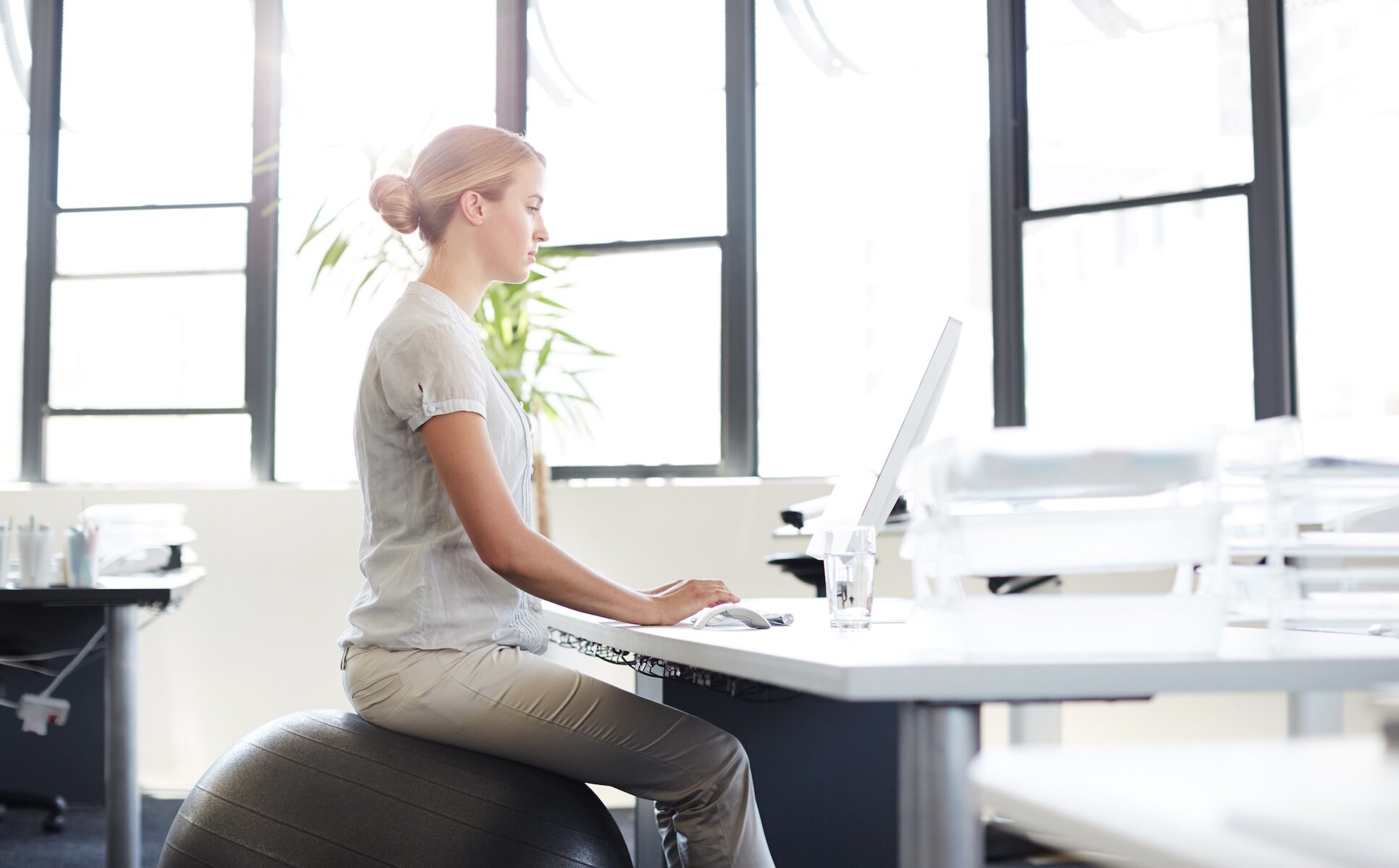9 tips to improve your well-being at work
The health crisis has disrupted employees’ working conditions in recent months. Whether returning to the office, working from home or mixing the two, staff have had no choice but to adapt. In these peculiar times, what steps can you take to improve your well-being at work while remaining productive?
1# Ensure you have a dedicated work area
Your surroundings directly influence your well-being and productivity. When you work from home, it is important to set up a special area. Ideally this should be in a closed room, away from the hustle and bustle of the home: this keeps your professional and private lives separate. If you don’t have the space, you’ll have to settle for a corner of the living room or bedroom, move onto the mezzanine or disappear under the stairs.
→ Try to delineate your workspace as much as possible by creating visual divides using a piece of furniture, a curtain or a screen.
2# Create a cosy environment
Your office should feel welcoming and make you want to work. Customise it by decorating it to your taste: indoor plants, calming colours, some helpful designer accessories, etc. For maximum comfort, choose somewhere near a light source, taking care to avoid screen reflections. Keep away from drafts and adjust the room temperature. These changes will have a direct influence on your morale and output!
3# Use the right equipment
Wherever you work, check that your equipment functions properly: computer hardware, internet connection… everything must be just right, and don’t forget the ergonomic chair. Start by adjusting your posture: your screen should be level with your eyes (use a booster if necessary), your feet flat on the floor, and your hands extending straight from your forearms. Relax your body when you work to protect your spine and prevent muscle pain.
→ Think about storage to maintain a pleasant environment in which you can concentrate: cupboards, shelves, drawers, boxes, etc. This will save you time and make you more productive.
Your peace of mind depends on your ability to separate your professional and private lives.
4# Separate professional and private lives
Your peace of mind also depends on your ability to separate your professional and private lives. It’s easier to separate the two when you are in the workplace. Working from home, on the other hand, you may be distracted by your surroundings – children, partner, housework, TV, etc. – or get stuck on a task that takes you beyond your clocking off time.
It is therefore essential that you structure your day with set working hours, and that you log off when the day is over. You should also set the times when you can be contacted by your manager and colleagues.
→ If you share your space, establish some ground rules with those around you: draw up a roster with your partner for looking after the children; choose some clear signals – if the door is closed or you’re wearing headphones, it means you mustn’t be disturbed; decide when you need some peace and quiet to concentrate, etc. This may be the right time to invest in noise-cancelling headphones!

Breaks are essential for your well-being. They prevent fatigue and boost your productivity.
5# Take regular breaks
Although they may seem unnecessary, breaks are essential for your well-being. They prevent fatigue and boost your productivity. Not only do they give you a chance to relax your muscles and rest your eyes, but they also help lift your spirits. To stay in a good mood and be productive throughout the day, divert your gaze from the screen regularly, stretch your limbs, walk around, listen to music, etc.
→ At home, use your breaks to zone out for a while (no emails or notifications) or relax: meditation, sophrology or yoga… all help combat stress!
6# Take care of your schedule
Start by listing and prioritising all of your tasks, and note down the estimated time needed for each one. This will prevent forgetfulness and help you meet your deadlines.
Then plan your work, deciding on your targets for the day, week or month. You’re advised not to give yourself more than five important tasks in any one day, and to alternate between the easier and tougher jobs. For example, consider at which times of the day you are less productive, to do something that requires less effort.
→ Be careful not to overdo it! Include some free time in your timetable so that you can take breaks, and also handle any emergencies.
Developing your knowledge and skills is an excellent way of boosting your self-esteem and staying motivated.
7# Keep learning
Developing your knowledge and skills is an excellent way of boosting your self-esteem and staying motivated. In Luxembourg, homeworking has widened access to remote learning through lessons given by video conference, webinar, virtual class, etc.
→ Flexible working arrangements and financial support are available for staff wanting to take courses. Find out more!
8# Keep in touch with your team
Your personal fulfilment also depends on the relations that you maintain with your co-workers and managers. Social interaction may be more complicated when you’re working from home, but new technology lets you stay in touch with your team. Choose the best means of communication for each situation: email for formal correspondence, instant messaging for discussions between colleagues, phone calls for emergencies, video conference for meetings, etc.
By keeping yourself informed of how a project is going, requesting an opinion or just asking how team members are doing, you increase the feeling of belonging and avoid feeling isolated.
To be happy and full of energy at work, it is essential that you feel comfortable with yourself!
9# Stay healthy!
To be happy and full of energy at work, it is essential that you feel comfortable with yourself! In the office as at home, staying healthy directly affects your well-being. Your body needs to move and expend energy, especially if you are sat down all day.
→ Do some sport before or after work: walking, running, dancing! Physical activity will keep you in good health by enhancing your mood and helping you manage stress.
Your diet also plays an important role. Try to eat balanced meals and remember to stay hydrated. You’re advised to drink at least 1.5 litres of water each day to keep your mind and body in shape.
Lastly, get a good night’s sleep. While needs differ from one person to the next, rest is essential for you to recharge your batteries!
If, despite all your efforts (and our tips), you no longer feel happy in your job, it may be time to step back. The health crisis has been a turning point for many workers who have decided to follow a different career goal or even change their whole way of life. Your future is in your hands. It’s up to you to turn obstacles into opportunities!
To help you improve your well-being at work, myLIFE has prepared this graphic.


 Mortgage
Mortgage Personal loan
Personal loan Savings
Savings